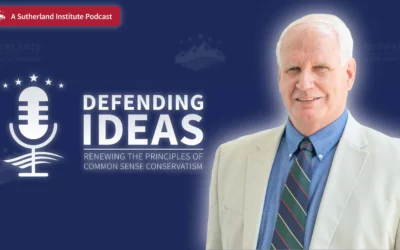
Written by William C. Duncan
July 20, 2023

The strength of the nation’s commitment to free speech is demonstrated not by our acceptance of familiar and comfortable messages, but by a willingness to tolerate expressions that may be unwelcome and even startling.
This is true of our commitment to other values like religious freedom as well. This is one reason a recent decision by a Minnesota appeals court is important.
The underlying dispute in the case looks a little different from recent religious freedom cases. It involves a dispute over “gray water,” the water “discharged after being used for dishwashing, laundry, bathing, and other tasks not involving toilet waste.” A local regulation required the use of a septic tank to dispose of gray water, but some Amish families in the area challenged the requirement as an infringement of their religious freedom.
How so?
The appeals court explained:
Appellants are members of the Swartzentruber Amish community in Fillmore County. Each Amish community has its own religious rules to live a godly life and stay separate from the world; many of these rules relate to keeping separate from modern technology. While the Swartzentruber Amish use some technology, they do not own or drive automobiles, own telephones, have electric lights, or use modern flush toilets, and they supply water to their homes using a cistern.
The Amish did not object to disposing of the water in a safe way, but this particular group of Amish reject much of new technology, including septic systems. Their proposed disposal method is based on similar principles to “privies, which are routinely approved for the Swartzentruber Amish and others.” Their proposal was to use mulch basins filled with wood chips, which filters out much of the waste, and the rest is purified in the soil underneath, like the soil under a septic system.
The specific legal claim of the Amish families is that the septic system requirement violates the Religious Land Use and Institutionalized Persons Act, a federal law which requires governments to show a compelling interest in any land use regulation that imposes a “substantial burden on the religious exercise of a person.” When the action imposes such a burden, the government has to show it promotes a compelling purpose tailored to advance that purpose without unnecessarily limiting unrelated religious practices.
Initially, the trial court and court of appeals sided with the government. But in 2022, the U.S. Supreme Court vacated those decisions and directed the state courts to reconsider the decision in the light of the Supreme Court’s precedent in a high-profile 2021 ruling regarding a dispute between a Catholic foster care agency and the city of Philadelphia.
Upon reconsideration, the district court again upheld the septic regulation – even though it burdened religious practice – because it believed the county was justified in imposing the requirement, based on expert testimony that the gray water could only be safely disposed of by using a septic tank. Last week, though, the court of appeals reversed that decision. The appeals judges said the trial court had relied on “generalized evidence,” not the necessary direct evidence that could justify imposing on the religious beliefs of the Amish families. The government’s insistence on its regulations was further undermined by the fact that it approved using similar technologies in outhouses.
The very unfamiliarity of the religious claim is what makes this case so important. It would be simple for a court to strike down a regulation that impacts a familiar religious practice. But we all hold beliefs important to us that may seem strange to people who aren’t familiar with them. When the courts apply religious freedom laws to provide relief to people of faith whose practices are little understood, all citizens can take comfort knowing their claims will be similarly protected.

Insights: analysis, research, and informed commentary from Sutherland experts. For elected officials and public policy professionals.

- Our commitment to constitutional values is demonstrated by our willingness to extend protections to unfamiliar and controversial practices.
- A recent state court decision from Minnesota involves such a practice – the refusal of some Amish families to use a septic system to dispose of gray waste.
- The court sided with the Amish, protecting their little-understood practices and making clear that the law protects all types of belief.
Read More
Protecting property rights against government overreach
While governments can continue to regulate land use, these regulations and fees must be justified by a government interest and proportional to the effect of the development’s impact on that interest.
Do we need to care about the Utah State Board of Education?
For any Utah voters who also feel like K-12 public education is headed in the wrong direction, learning about the candidates running for a seat on the Utah State Board of Education (USBE) is a wise choice this election season.
Defending education choice the right way
Education choice has exploded in popularity across the nation in recent years. So why does it remain a contentious point of debate in some parts of the country?


